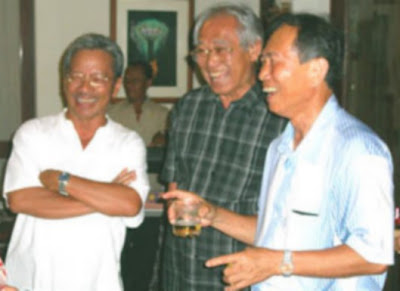Does Sarawak need a new party, given the fact that if PKR forms the next state government, this will open the door to other Malayan parties like Umno to come in? Can the present state PKR leadership garner the support of the Dayaks, the Orang Ulu and the Malay/Melanaus, given that most of the Chinese majority seats will be contested by DAP? Is it capable of doing so?
If PKR or Pakatan Rakyat comes to power in Sarawak, this will mean that for the first time, Sarawak politics will be directly determined by Malayan-based political parties (PKR and DAP, maybe even PAS) instead of Sarawak-based political parties themselves. Is this a better alternative to the present situation where even Umno cannot come into Sarawak directly? Sarawakians have to ask themselves whether Sabahans are better off under direct Umno rule? The answer is probably ‘no’.
Sarawakians will therefore also have to ask themselves whether Sarawak will be better off under direct PKR rule or under a new Sarawak-based party which will take the place of PBB, Snap, MDC, PRS and SPDP as part of Pakatan Rakyat? I have a preference for the latter because this will mean that to a great extent Sarawak's autonomy will be better preserved than having to kowtow to the Malayans, even under Anwar Ibrahim.
At the same time, Sarawak will still have a say in the federal government through Pakatan Rakyat. Otherwise, independence is or should be the ultimate solution. Based on feedback, I will soon be coming out with an open letter to all Sarawakians to determine the direction Sarawakians should or want to take to achieve the goal of political, business, economic, administrative and land reform (amongst others) for Sarawak.
Once this is determined, then Sarawakians can discuss constructively and decide the strategies and practical policies and moves to be implemented to achieve a change of government for the betterment of all Sarawakians, irrespective of race, creed or religion.

 Dr. Masing, Tajem and Salang
Dr. Masing, Tajem and Salang

 Dr. Jemut Anak Masing
Dr. Jemut Anak Masing
